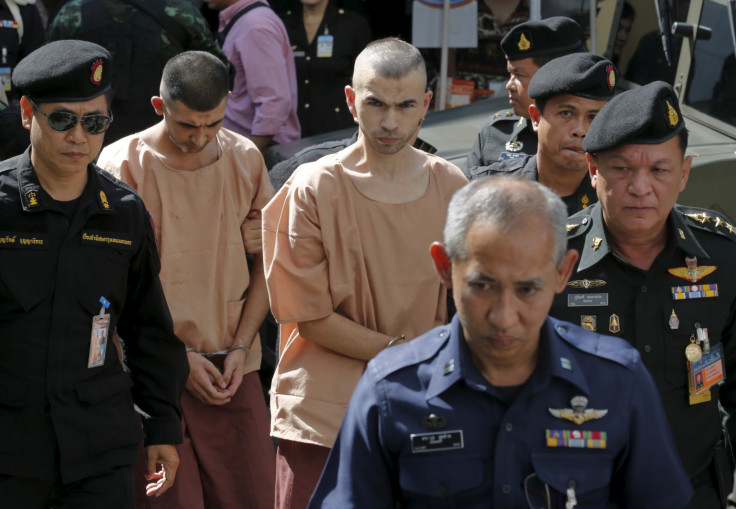Trial of 2 Chinese ethnic Uighur men suspected of carrying out Bangkok bomb attack begins
20 people were killed in the 17 August 2015 bombing at Bangkok's Erawan Shrine.

Trial of the two Chinese ethnic Uighur men suspected of carrying out the deadly 2015 Bangkok bomb attack in which 20 people were killed including 14 foreigners has commenced at a military court in the capital. Hearing began on Tuesday (15 November) being delayed thrice as defence lawyers were not able to find suitable interpreters for their clients.
The 17 August incident at Bangkok's Erawan Shrine is believed to be the worst bomb attack in Thailand's history.
According to reports, Yusufu Mieraili and Adem Karadag, also known as Bilal Mohammed, were dressed in brown prison outfit as they were presented before the military court. Ten charges have been levied against them, including murder and illegal possession of explosives.
The duo have confessed to their involvement in the bombing, local police said. However, they pleaded not guilty before the court of law and said that they were forced to confess to the crime while in custody.
Both Mieraili and Karadag have claimed that as they were Uighurs Muslims they had to face oppression in China at the hands of the society, hence they flee the country's western Xinjiang region.
The accused were against the appointment of interpreters for them and stood at the dock in protest. "I don't need an interpreter from China because China does not respect Uighurs," Mieraili was quoted as saying by Reuters in courtroom.
However, the court overruled the suspected bombers demands and said the trial would proceed regardless.
"The court thinks these two interpreters are appropriate because they speak the Uighur language. Today I will appoint both as interpreters and cross-examination will begin," one of the three judges overseeing the trial said.
The names of the judges have not been disclosed due to security reasons.
"The defendants worry a bit because they are from Xinjiang and have friction with mainland China. But the interpreters seem okay," Choochart Kanpai, a lawyer for Karadag said and added that trial is expected to end in early 2018.
Analysts think the 2015 shrine attack was in revenge for the Thai junta's forceful repatriation of 109 Uighurs to China weeks before the explosion. However, local police consider the bombing as retaliation for a crackdown on human trafficking networks, Reuters reported.
© Copyright IBTimes 2025. All rights reserved.



















